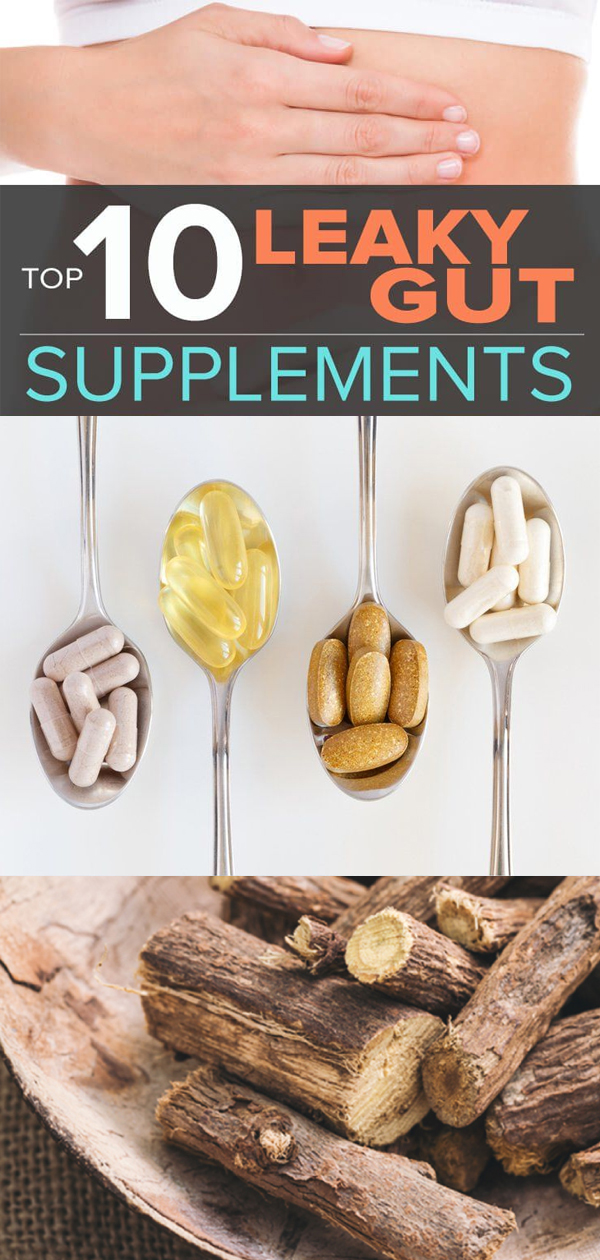Before we discuss leaky gut, we will admit to something. The truth is that we – including doctors, scientists, and other experts – don’t know a whole lot about our tummies.
The gastrointestinal (GI) tract, also called the “gut,” comprises the mouth, esophagus, stomach, pancreas, liver, gallbladder, small intestine, colon, and rectum. Aside from the brain, the gut may be the most mysterious system of the human body.
For example, did you know that the gut is considered an organ of the immune system? That’s right. Consequently, the gut houses over 70 percent of our body’s immune cells.
It also turns out that the gut and brain are intimately connected, meaning that the GI tract communicates on some level with the emotional center of the brain, the limbic system. So when we experience “butterflies in the stomach” or some other “gut-wrenching” moment, the gut literally feels those emotions.
Additionally, the emotions of anger, anxiety, joy, surprise, and more are capable of setting off a cascade of chemical reactions in the gut capable of producing genuine symptoms.
Why are we telling you all of this? Because the gut has a direct effect on not only your physical health but your psychological health as well. These effects are apparent in a condition known as “Leaky gut syndrome,” which is the main topic of today’s article.
We are going to discuss leaky gut syndrome and ten supplements for fixing a leaky gut.
“[Leaky gut] could happen when tight junctions in the gut, which control what passes through the lining of the small intestine, don’t work properly. That could let substances leak into the bloodstream.” – WebMD
What Is Leaky Gut?
Otherwise known as “intestinal permeability,” leaky gut syndrome is caused by damage to the mucosa – a 4,000-square-foot membrane that serves as a barrier between the intestines and bloodstream. When damaged, the intestines may “leak” byproducts such as food particles, toxins, microbes, and other stuff.
The leaky gut syndrome may produce symptoms ranging from anxiety and depression to arthritis and thyroid disorder. As with pretty much every other medical condition out there, doctors will likely prescribe a variety of pharmaceutical drugs for “intestinal permeability.” However, natural supplements may provide just as good, if not better, health results.
Here Are Ten Healthy Supplements For Leaky Gut Syndrome:
1. Probiotics
Probiotics are the community of good bacteria crucial to gut health. Consisting of live bacteria and yeast, it’s still kind of unclear as to why these microorganisms are so helpful. But research has shown that probiotics can help fight diarrhea, relieve irritable bowel syndrome (IBS), and of course heal a damaged gut.
2. Antifungal Agents
The unsung heroes on this list, antifungal agents such as caprylic acid and cellulose, help balance out gut “flora.” They also work miracles in terms of preventing the overgrowth of unwelcome guests, such as candida and yeast.
3. L-Glutamine
L-glutamine is an amino acid supplement that performs two very important functions. First, the acid coats the intestinal mucosa, providing relief for leaky gut symptoms. Second, L-glutamine solidifies the cells within the gut. Together, these benefits can help potentially heal and prevent the syndrome.
4. Collagen
Traditionally found in bone broth (a powerful natural remedy, by the way) collagen is a supportive protein that stimulates the production of GI tract fluids. It also serves as a building block for the amino acids glycine and proline, which can repair damage to the intestinal wall.
5. Licorice Root
Licorice root, an adaptogenic herb, helps the body adapt to emotional and physical stress – which is something we could all likely use! Additionally, a variation of this herb – called DGL – aids by maintaining the mucosal lining of the small intestine and stomach. As leaky gut disproportionately affects those with high-stress levels (everyone?), DGL also provides an excellent supplement for preventing leaky gut.
6. Fiber
Chia seeds, flaxseeds, and hemp seeds probably arguably the best sources of fiber for leaky gut. Not only are these products packed with fiber, but they also maintain and extend the life of probiotics. Between 30 to 40 daily grams of fiber is recommended for leaky gut symptoms.
7. Digestive Enzymes
Enzymes effectively dissolve proteins, starches, sugars, and other food byproducts during digestion. The four digestive enzymes are amylase, which breaks down carbohydrates; lactase, which breaks down dairy; lipase, which breaks down fats; and protease, which breaks down gluten and proteins. Enzymes have potent anti-inflammatory benefits as well.
8. Hydrochloric Acid (Hcl) With Pepsin
HCL is the main stomach acid responsible for breaking down everything that we eat before it reaches the small intestine. A variation of HCL – HCL with pepsin – aids in this process. Research shows that most people suffering from leaky gut syndrome have low levels of HCL. One caveat: you need to take HCL with pepsin along with meals that contain protein.
9. N-Acetyl Glucosamine (Nag)
NAG is a derivative of glucose that protects the lining of your stomach and intestines. A proven anti-inflammatory agent, NAG proves useful as a treatment alternative for conditions such as Crohn’s disease, inflammatory bowel disease, and ulcerative colitis.
10. Quercetin
The unofficial “gut sealer,” quercetin is a plant flavanol found in many fruits, vegetables, grains, and leaves. Furthermore, quercetin contains junction proteins, which help bind cells of the mucosal wall. Researchers also attribute the positive gut health qualities of quercetin to its anti-inflammatory effects.
Closing Thoughts
Above all, maintain a positive attitude regarding this health issue. Choosing the above natural remedies should provide relief and get you on the road to better health in no time!


